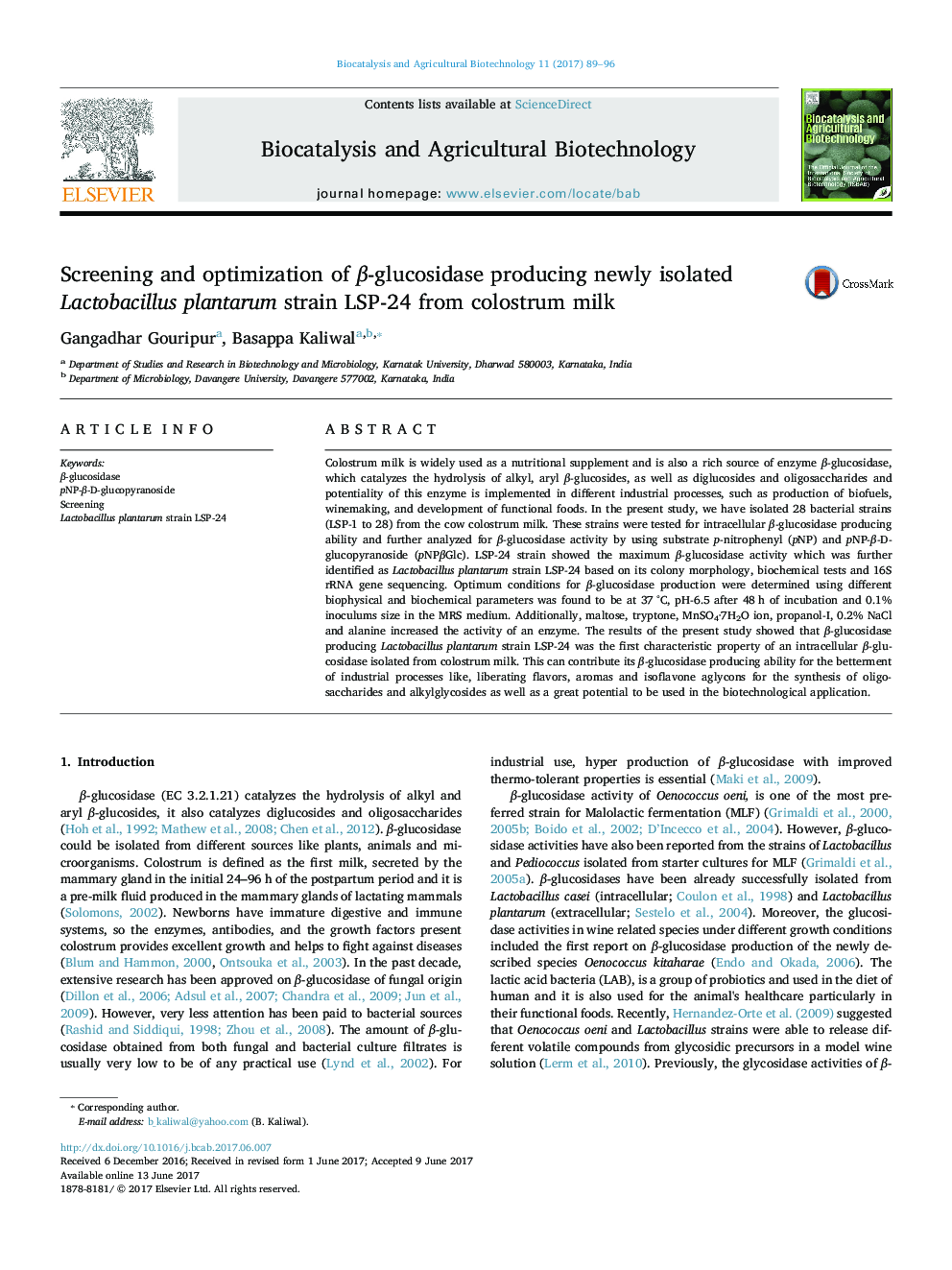| Article ID | Journal | Published Year | Pages | File Type |
|---|---|---|---|---|
| 5520520 | Biocatalysis and Agricultural Biotechnology | 2017 | 8 Pages |
Colostrum milk is widely used as a nutritional supplement and is also a rich source of enzyme β-glucosidase, which catalyzes the hydrolysis of alkyl, aryl β-glucosides, as well as diglucosides and oligosaccharides and potentiality of this enzyme is implemented in different industrial processes, such as production of biofuels, winemaking, and development of functional foods. In the present study, we have isolated 28 bacterial strains (LSP-1 to 28) from the cow colostrum milk. These strains were tested for intracellular β-glucosidase producing ability and further analyzed for β-glucosidase activity by using substrate p-nitrophenyl (pNP) and pNP-β-D-glucopyranoside (pNPβGlc). LSP-24 strain showed the maximum β-glucosidase activity which was further identified as Lactobacillus plantarum strain LSP-24 based on its colony morphology, biochemical tests and 16S rRNA gene sequencing. Optimum conditions for β-glucosidase production were determined using different biophysical and biochemical parameters was found to be at 37 °C, pH-6.5 after 48 h of incubation and 0.1% inoculums size in the MRS medium. Additionally, maltose, tryptone, MnSO4·7H2O ion, propanol-I, 0.2% NaCl and alanine increased the activity of an enzyme. The results of the present study showed that β-glucosidase producing Lactobacillus plantarum strain LSP-24 was the first characteristic property of an intracellular β-glucosidase isolated from colostrum milk. This can contribute its β-glucosidase producing ability for the betterment of industrial processes like, liberating flavors, aromas and isoflavone aglycons for the synthesis of oligosaccharides and alkylglycosides as well as a great potential to be used in the biotechnological application.
